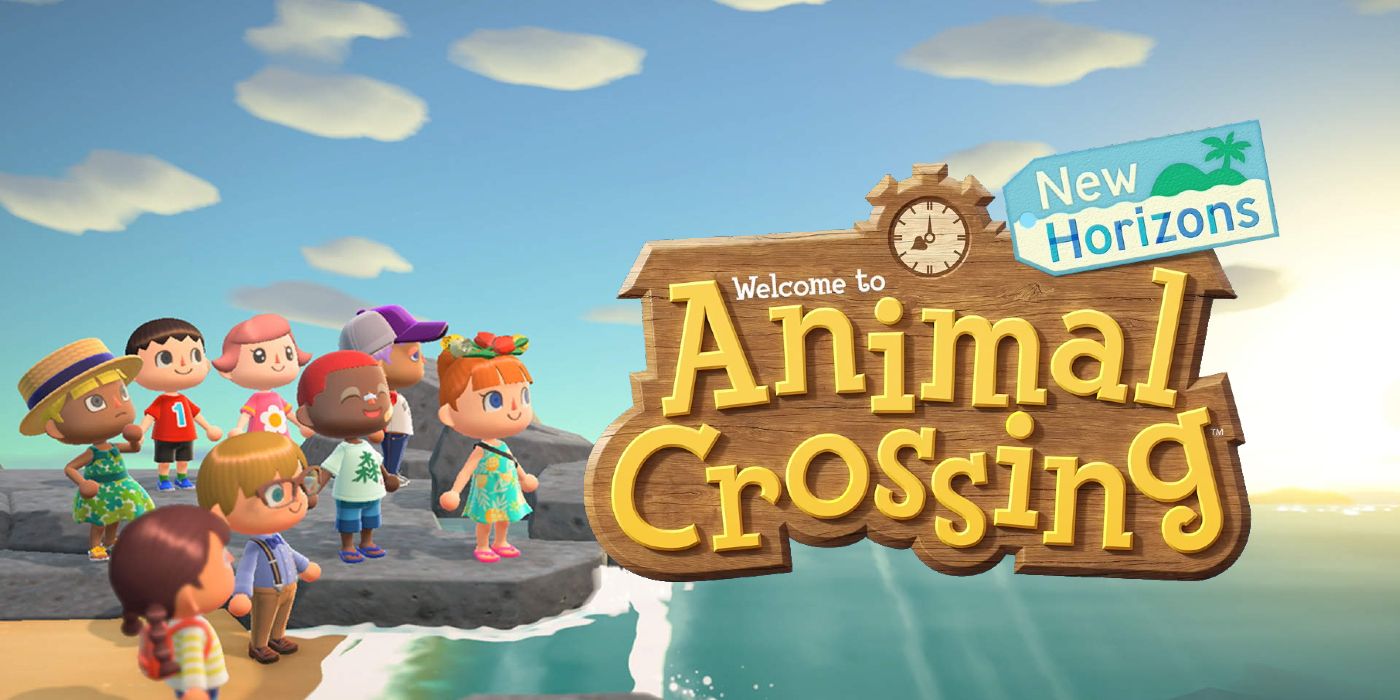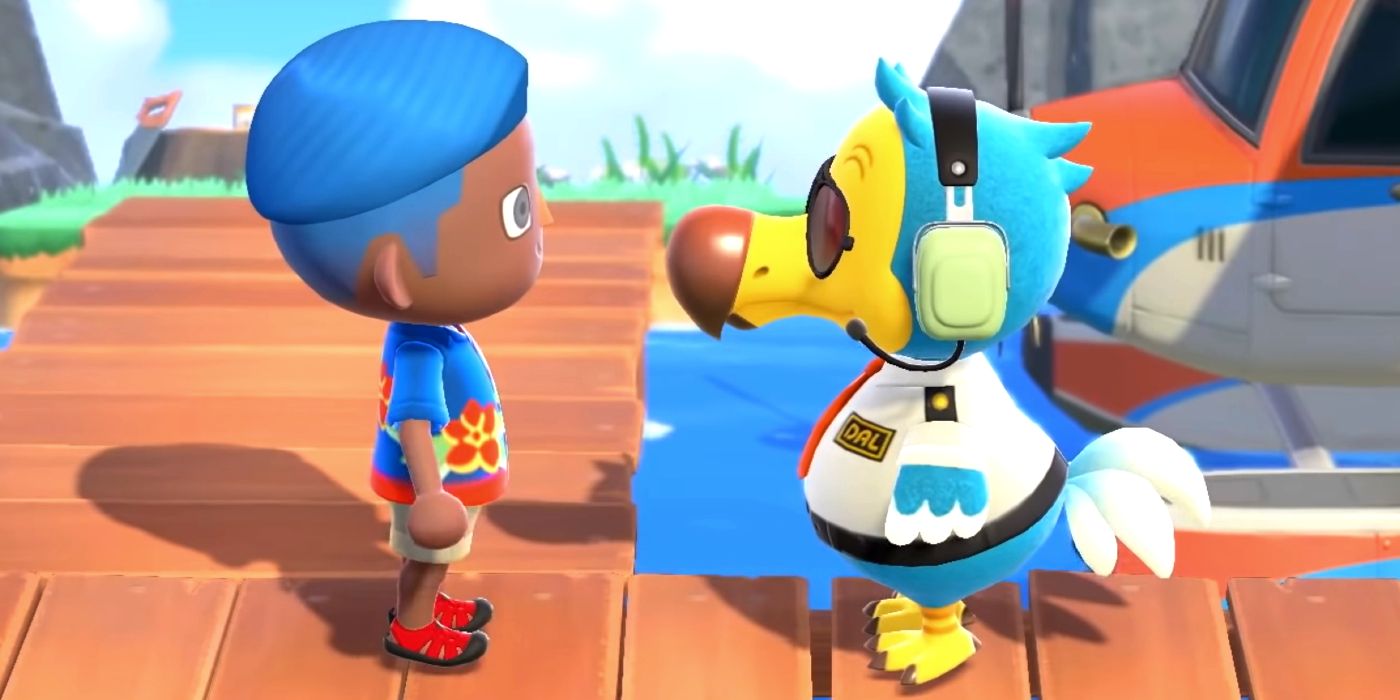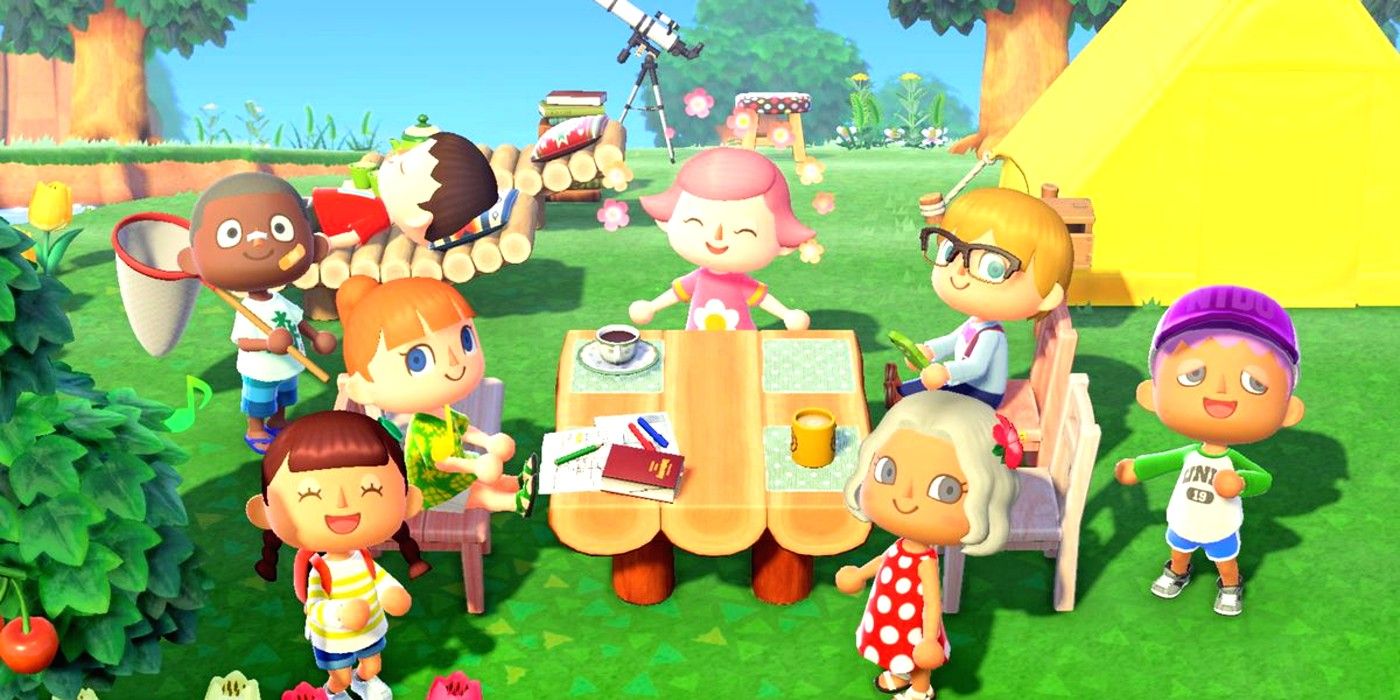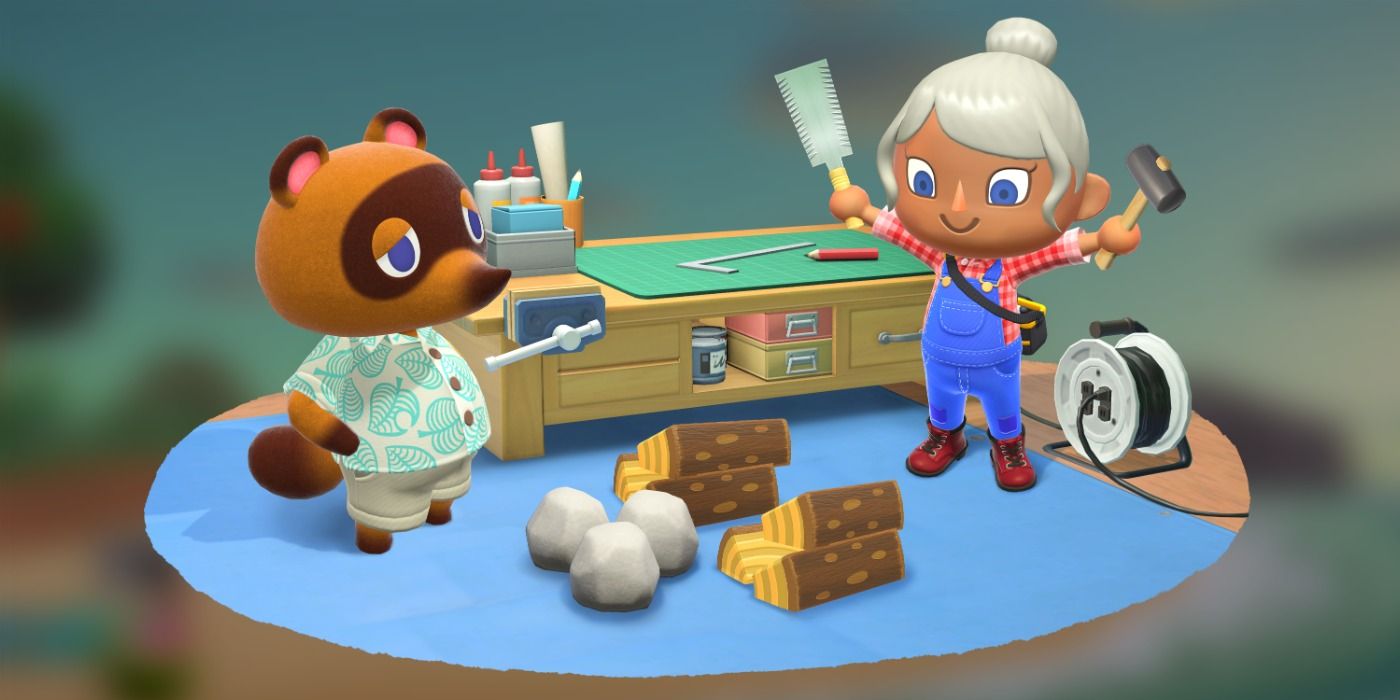Just a few minutes into Animal Crossing: New Horizons, fans of the series will immediately feel like they're at home. For a game that's about the simple things in life - collecting bugs, selling them for bells, falling further and further into debt with an anthropomorphic raccoon - the actual introduction mirrors that conceit nicely. The same charm that has made the Animal Crossing franchise one of the most quirky and beloved in Nintendo's stable of exclusives is omnipresent within New Horizons. Tom Nook is still Tom Nook, but he's dressed more like a dad on vacation than a savvy business owner.
The biggest challenge for Animal Crossing: New Horizons likely wasn't recapturing the magic that made nearly every iteration of the series a popular one among its burgeoning fan base. The true task at hand was creating a game that satisfies those players by innovating on the old formula and simultaneously offering up a welcoming point of entry into Animal Crossing for the uninitiated. Even with that tricky balance to maintain, Animal Crossing: New Horizons basically succeeds at everything it sets out to do, making it the deepest (probably - who knows how many events are planned for six months or a year of in-game time passing?) and most intriguing Animal Crossing game yet.
Animal Crossing: New Horizons is unique to its franchise because of the way it approaches building up relationships with villagers as the player progresses through the world. Instead of moving into a town that is partially established or, at the very least, has the basics of civilization baked in, New Horizons ships players off to a deserted island with Tom Nook, his children, and a few other enterprising villagers. The idea is executed beautifully, mixing the more addictive parts of survival-style gameplay with the already infectious cheer of the writing and character design in every Animal Crossing.
It's extremely satisfying, for instance, when players finally get to build a bridge that connects one chunk of the island to another over a river. Menial tasks like basic construction and DIY projects feel much more important in New Horizons thanks to the way the game progresses, with each new task opening up something else and making the island gradually feel like a more traditional village. As more characters move in and more resources open up, it truly feels like the player has guided the evolution of this once desolate island into a bustling town full of personality.
Animal Crossing: New Horizons gives players very few tools to start, and most of the ones players get access to will need to be built by them. For that reason, the game begins rather slowly. Progression through the first few days - which are tied into real-time - can be painfully slow and gated by resource renewal. There's a limited number of natural resources on the island, after all, and some of them aren't accessible right away - players who need wood from more trees will need to plant them and wait, unless they unlock the pole vaulting tool that lets them traverse rivers.
That type of progression doesn't last long, though, and it's helped by the fact that Animal Crossing: New Horizons lets players visit other islands through their own location's airport basically right away. Those islands also have materials, alongside the occasional new character to meet and new flora or fauna to bring home. The airport will also let players visit online locations, ensuring there will rarely be a shortage of things to do when their own island is refreshing its offerings.
Progression through Animal Crossing: New Horizons is the most satisfying it's been in the series, too. Nook Miles - they're exactly what they sound like - let players accomplish tasks throughout their game and accumulate points in a system that then rewards them with more tools used to progress. It's a satisfying feedback loop and it's tied into the player's cell phone, which also lets them use photo mode, see their New Horizons DIY recipes, and more. Fans of paying off debts to Tom Nook can rest assured that there is plenty to be extorted - sorry, talked - into, as well. The never-ending loop of chipping away at one debt just to be convinced into another ensures that players almost always have an end goal.
Other new features in Animal Crossing: New Horizons are similarly impressive. Being able to more strictly dictate how and where villagers settle down is nice, as is the player's inventory, which can grow to more items than ever. Animal Crossing: New Horizons also adds autosaves as a new feature to the series, a nice fail-safe for those who have known the pain of making hours of progress and then shutting the game off without remembering to save manually. Long-time fans will also be excited to discover that the ability to import old designs coupled with more depth in furniture customization and layout makes creating the dream Animal Crossing home more of a reality than ever before.
The most compelling new feature of Animal Crossing: New Horizons is the ability to terraform the player's island. The Island Designer skill might take some time to acquire, but with good reason - it shifts the game's perspective from grappling with the environment the villagers have found themselves in to outright putting it in a headlock and making it exactly what they want. It's perfectly timed, coming around the progression point where the island's generated design can begin to feel taxing on creativity. Once it's unlocked, the game becomes even more compelling. It's also the kind of feature that provides an incredible amount of depth for hardcore fans but is also easy to explore for those who are more casually interested in the new skill.
With that said, Animal Crossing: New Horizons can feel like it drags a little in spots. A strong example of this tedium is the construction of the museum, which features bugs, aquatic life, and fossils that have been donated by the player. Early in getting it started, there are rewards for each addition. Eventually, though, the rewards dry up, and donations in the dozens simply get the player a pat on the back and a request for more in the future. These feedback loops of grind, reward, and grind more getting interrupted at seemingly random intervals can be a frustrating experience, though not one that threatens to ruin the game's feel as a whole. If Animal Crossing: New Horizons aims to offer a second life, then it stands to reason there would at least be some flaws in it to help it more closely mirror the real thing.
It's interesting to see just how far Animal Crossing: New Horizons pushes the series and just how flexible it has ended up being. With so many twists on the gameplay formula many have come to know and love, there was a chance that New Horizons would do too much and end up a daunting mess. Instead, it's as welcoming as ever with the added benefit of offering the freshest look at an Animal Crossing fans have ever had. While the game can be a bit plodding in places, it's never enough to detract from the way it oozes happiness at every turn. It may not be the most technically impressive or innovative game ever created, but Animal Crossing: New Horizons is one of the most enjoyable releases over the last couple years. While it's tough to say how well it will hold up over a span of months or years - and that is one of the selling points - it's not difficult to wholeheartedly recommend as yet another incredible Nintendo Switch exclusive.
Animal Crossing: New Horizons is available on March 20, 2020 exclusively for Nintendo Switch. Screen Rant was provided with a digital copy of the game for the purpose of this review.




